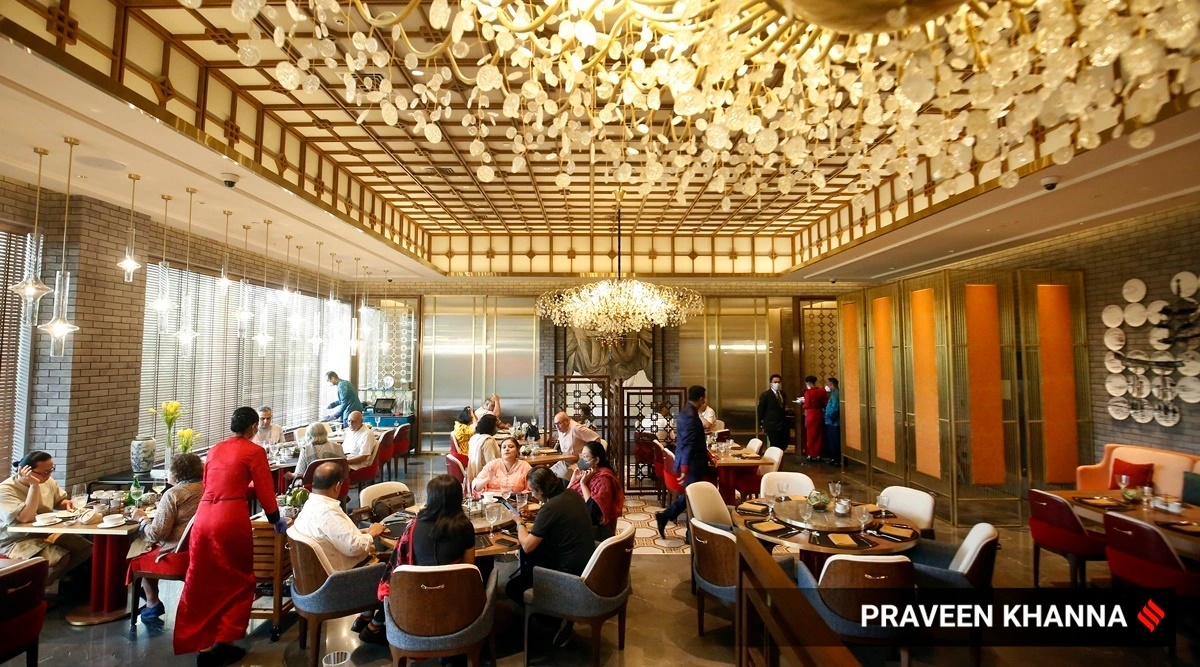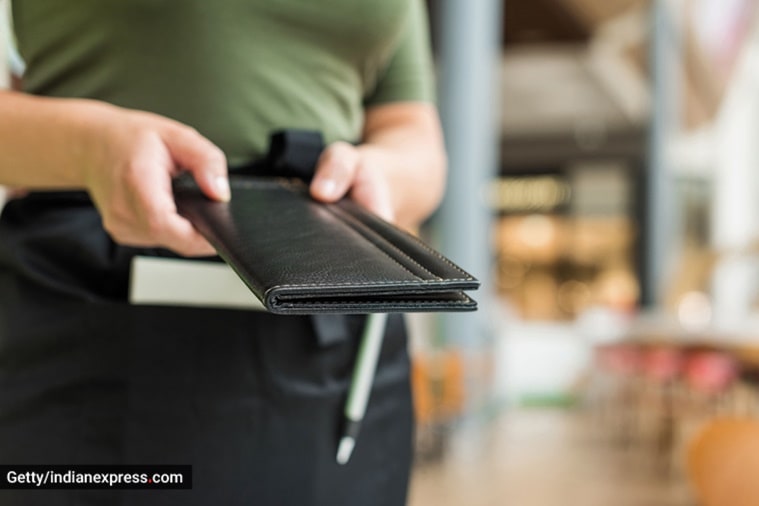 No hotel or restaurant "shall force a consumer to pay service charge and shall clearly inform the consumer that service charge is voluntary. (Express photo by Praveen Khanna)
No hotel or restaurant "shall force a consumer to pay service charge and shall clearly inform the consumer that service charge is voluntary. (Express photo by Praveen Khanna)The experience of dining in a restaurant may not change, but the bill amount handed over to you after you finish the meal may look a tad different.
The Central Consumer Protection Authority (CCPA), on Monday, barred hotels and restaurants from adding service charge “automatically or by default” to the food bill.
What does it mean?
Best of Express Premium
It means that as a customer, it is totally at your discretion to pay or not to pay the service charge.
“The guidelines issued by CCPA stipulate that hotels or restaurants shall not add service charge automatically or by default in the food bill. No collection of service charge shall be done by any other name,” the Union Ministry of Consumer Affairs, Food and Public Distribution said in a statement.
It added that no hotel or restaurant “shall force a consumer to pay service charge and shall clearly inform the consumer that service charge is voluntary, optional and at consumer’s discretion”.
We reached out to some restaurant owners to find out what they think about this move, and how it is going to affect their business from here on.
 As a customer, it is totally at your discretion to pay or not to pay the service charge. (Photo: Getty/Thinkstock)
As a customer, it is totally at your discretion to pay or not to pay the service charge. (Photo: Getty/Thinkstock) Manav Windlass, the owner of Kiara Soul Kitchen in Delhi’s Greater Kailash 2 said, “It is difficult for us, because service charge was something from which the entire staff used to benefit. In terms of revenue stream, it affects the entire restaurant industry. One has to understand how it came into existence in the first place, the genesis of it, because now it has become quite a standard practice across restaurants.”
He pointed out that restaurants — with food aggregators like Swiggy and Zomato operating simultaneously — fear that they may miss out, and so, give discounts as well. “I feel restaurants will now have a setback and they will suffer. When it comes to customers, we are transparent about the charge, and so it should have been permitted [to continue]. We are left with only one option now, to review our pricing,” he said.
The ministry guidelines specified that there should be no restriction on entry or provision of services based on collection of service charge. “Service charge shall not be collected by adding it along with the food bill and levying GST on the total amount,” it said, adding that if any consumer finds that a hotel or restaurant is levying service charge in violation to the guidelines, they may make a request to the hotel or restaurant to remove it from the bill amount.
Vikrant Dawda, the owner of La Crosta Vashi, however, is of the opinion that not requiring a service charge is “equally fair”, because “the customer should have the option to pay the fees or not. The goal is to provide them with a comfortable experience so that they will pay for the services they utilised in accordance with their level of comfort,” he said.
Windlass questioned why the restaurant industry alone is being asked to remove the service charge, when in other industries there exists something called a “convenience fee”, “…like when you book tickets, or do any other form of transaction”.
Shreyas Kudalkar, the owner of Kings Hotel & Resort told this outlet that as a patron and restaurateur, he thinks that a 10 per cent service charge is excessive. “I feel if the government levies a 2-3 per cent service charge, then the customer and the restaurant both would be treated fairly. The new rule will mostly impact the restaurant staff, because they work long hours to give customers excellent service.”
📣 For more lifestyle news, follow us on Instagram | Twitter | Facebook and don’t miss out on the latest updates!
- The Indian Express website has been rated GREEN for its credibility and trustworthiness by Newsguard, a global service that rates news sources for their journalistic standards.

